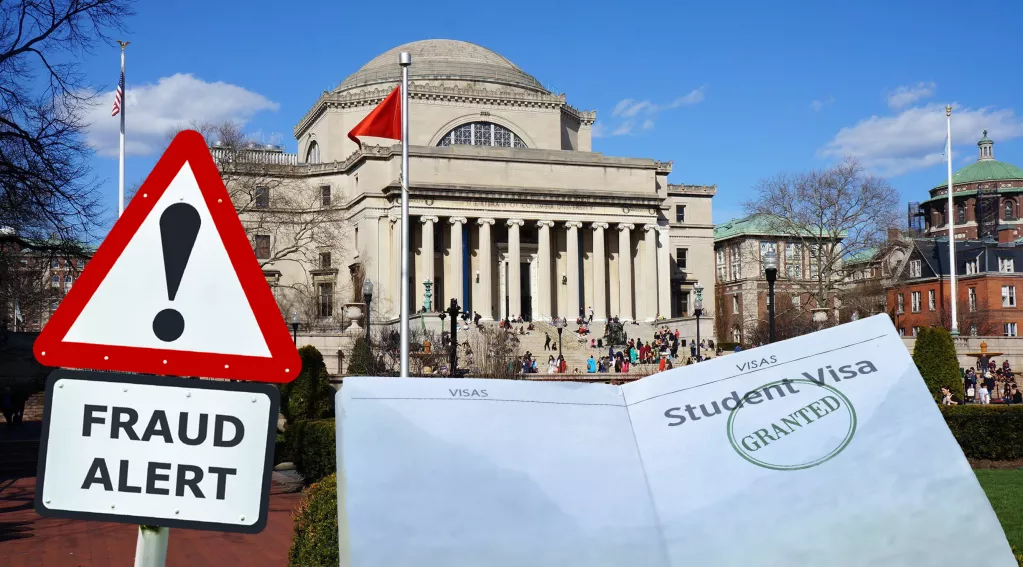Student Visa Shenanigans Put ICE to the Test

A lawsuit filed against Columbia University by an employee who says she was fired for refusing to lie to the Department of Homeland Security could be the tip of a visa fraud iceberg. DHS should dig into it to see how many bogus student certifications the agency has allowed at other schools.
Yocasta Brens, a Columbia University Designated School Official (or DSO, a school’s DHS liaison), claims she was directed to “process immigration documents on behalf of a group of potential students from South Africa without the necessary documentation, including evidence of funding and full-time engagement in a prescribed program, as required by federal regulations.”
Brens stated that she and her staff “were frequently asked to ‘bend’ the rules in order to keep the enrollment of international students at a high level” and directed to “certify that certain international students were enrolled full-time when they were, in fact, not full-time students” and “extend students’ immigration documents when they did not qualify based on federal requirements.”
The Student and Exchange Visitor Information System (SEVIS) is the government’s database on the Student and Exchange Visitor Program (SEVP). “SEVIS exists precisely because DHS needs to know if a foreign national fails to maintain full-time enrollment and take action before a threat develops. Schools that fail to adhere to regulations create a significant threat to our nation and can have their certification to enroll foreign students withdrawn,” says Jon Feere, a former Immigration and Customs Enforcement (ICE) chief of staff and director of investigations at the Center for Immigration Studies.
DHS relies on DSOs to ensure data on foreign students are properly reported. If Columbia has security gaps, it’s entirely possible there could be lapses at any number of the 15,000 other U.S. colleges and universities in the student visa program.
In light of Brens’ lawsuit, Feere says ICE must immediately launch an investigation of Columbia’s entire foreign-student program. “Agents will need to audit all SEVIS information Columbia provided to determine the extent of the alleged fraud,” Feere said.
If Brens’ allegations prove true, the Ivy League school could be barred from enrolling new foreign students for at least a year.
The Columbia case is a wake-up call for ICE, which was given the job of overseeing SEVP and SEVIS after terror attacks on the U.S. in 1993 and 2001. Some of the terrorists had entered the country on student visas.
And terrorism isn’t the only concern. FAIR has also reported that espionage by Chinese nationals enrolled here on student visas poses an increasing threat to U.S. security.
While avaricious schools clamor for evermore foreign students (cha-ching!) and the Biden administration guts immigration enforcement, Yocasta Brens’ lawsuit threatens to expose serious cracks in the student-visa system.

